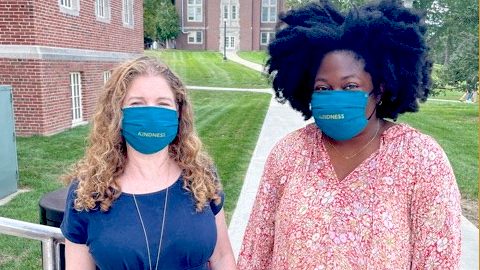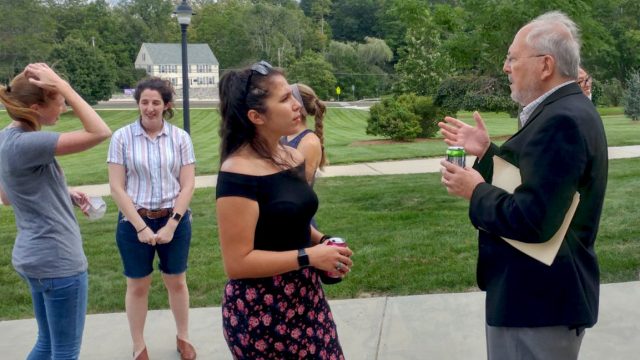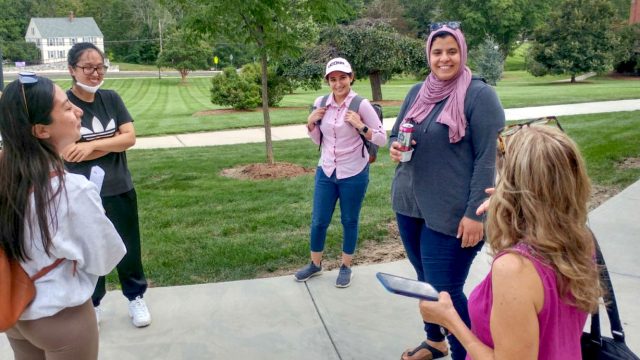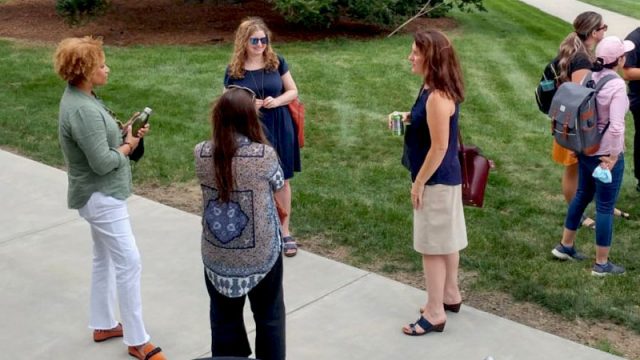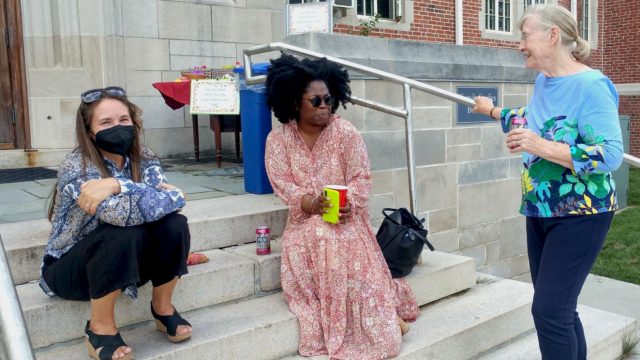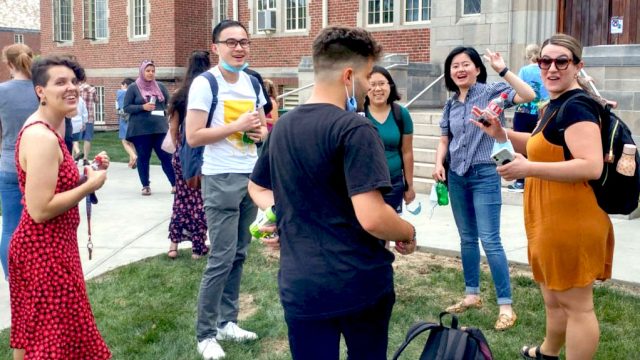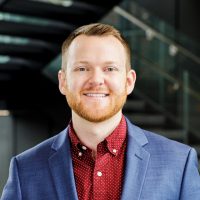 Associate Professor Ryan Watson was featured in an article about how schools are banning pride flags as political speech.
Associate Professor Ryan Watson was featured in an article about how schools are banning pride flags as political speech.
Faculty
Marlene Schwartz featured in ConscienHealth article
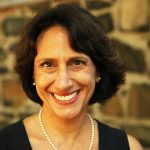 Professor Marlene Schwartz was featured in an article for her editorial on whether Americans are eating more junk food. Read the article here.
Professor Marlene Schwartz was featured in an article for her editorial on whether Americans are eating more junk food. Read the article here.
HDFS faculty and graduate students present their research at NCFR conference
Eight HDFS faculty and seven HDFS graduate students will be presenting their research at the National Council on Family Relations (NCFR) this November, online. See the full list here.
Ryan Watson, HDFS Faculty Spotlight, October 2021
Associate Professor
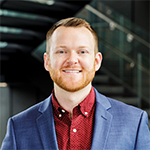 Dr. Ryan Watson studies the health and well-being of sexual and gender diverse (SGD) youth and young adults. Coming from a family with no college graduates, he began his research career when he spotted a flyer that advertised a research opportunity. The flyer hung outside his classroom at UCLA, mostly covered over by spring break and fraternity advertisements. He figured research was important if he wanted to go to graduate school someday, and he might first pursue a chance to get involved in research before signing up to party for spring break.
Dr. Ryan Watson studies the health and well-being of sexual and gender diverse (SGD) youth and young adults. Coming from a family with no college graduates, he began his research career when he spotted a flyer that advertised a research opportunity. The flyer hung outside his classroom at UCLA, mostly covered over by spring break and fraternity advertisements. He figured research was important if he wanted to go to graduate school someday, and he might first pursue a chance to get involved in research before signing up to party for spring break.
After two years collecting data from children in intercity Los Angeles schools, Ryan found some preliminary evidence of health disparities among lesbian and gay kids. Specifically, it appeared that some gay kids had reported much more cyberbullying than everyone else (i.e., heterosexual kids) in a study he worked on, but there were too few gay kids in the study to draw any conclusions. This observation inspired him to further study SGD young people. One of his research mentors gave him the business card of a professor she had met in Europe while at a conference—and said to go study with him. Ryan put the card in his dorm room desk, re-discovered it a year later, and found himself completing his PhD in Human Development and Family Sciences with that same professor at the University of Arizona.
Ryan’s work has taken place in three countries: the US, Norway, and Canada. His dissertation, in part, compared Norwegian youth to U.S. youth. He was interested in whether or not young SGD people living in a country like Norway (where same-sex rights and marriage had been granted for many years) were better off than youth living in the US, where many of these rights did not exist. In Canada, Ryan completed his postdoctoral training, where he examined trends and disparities in health for both Canadian and US young SGD individuals.
Now Ryan focuses his scholarship on SGD youth and young adults, their relationships within family and school contexts, and their health experiences. For the past decade, he has employed quantitative techniques using large non-probability and representative datasets to better understand the mechanisms that drive well-documented injustices in health, school, and community experiences for SGD individuals. He currently serves as principal investigator on two NIH grants, both of which fund him to intervene in the health disparities facing young sexual and gender diverse young people.
In 2017, in partnership with the Human Rights Campaign, Ryan and his colleagues collected data from more than 17,000 SGD youth across the US. This project has resulted in more than 25 peer-reviewed publications, with another 10 currently under review. In 2022, Ryan plans to repeat this national survey– stay tuned!
Ryan’s research has been featured on CNN, NPR, Washington Post, Live Science, USA Today, and several other media outlets. He has leadership roles in the Society of Research on Adolescence and is a consulting editor for the Journal of Research on Adolescence, Journal of Clinical Child and Adolescent Psychology, LGBT Health, and AIDS & Behavior.
Outside of work, Ryan enjoys his bearded dragon (named Lizzo) that he adopted on day 1 of the COVID-19 pandemic (for company!). He was a collegiate bowler at one time, but now he just enjoys bowling for fun. Who knows, you might see him bowling with Lizzo on his shoulder someday in the future.
Welcome Back HDFS Faculty, Grad Students & Staff
Faculty, staff, and grad students were excited to see each other in person – socially distanced outside – at a gathering to celebrate the start of the new year.
Marlene Schwartz featured in FoodNavigator-USA article
 Professor Marlene Schwartz featured in an article on high rates of sugary drink consumption among Black and Hispanic students. Read the article here.
Professor Marlene Schwartz featured in an article on high rates of sugary drink consumption among Black and Hispanic students. Read the article here.
Ryan Watson and team receive NIH supplement award
 Associate Professor Ryan Watson is part of a team that received a $620,000 NIH supplement award to launch a follow up national survey of LGBTQ teens.
Associate Professor Ryan Watson is part of a team that received a $620,000 NIH supplement award to launch a follow up national survey of LGBTQ teens.
Linda Halgunseth now has a joint appointment with El Instituto
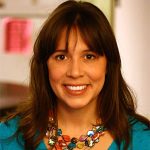 Associate Professor Linda Halgunseth now has a joint appointment with El Instituto. As part of this position, Linda will teach courses for both HDFS and El Instituto, and is working with CETL to develop a course on Latinx families. We are excited about the opportunities that this joint position will provide the department for more collaboration between HDFS and El Instituto. It is also a great opportunity for the Hartford campus to have increased course offerings in LLAS.
Associate Professor Linda Halgunseth now has a joint appointment with El Instituto. As part of this position, Linda will teach courses for both HDFS and El Instituto, and is working with CETL to develop a course on Latinx families. We are excited about the opportunities that this joint position will provide the department for more collaboration between HDFS and El Instituto. It is also a great opportunity for the Hartford campus to have increased course offerings in LLAS.
Jodie Oshana, HDFS Faculty Spotlight September 2021
Visiting Assistant Professor
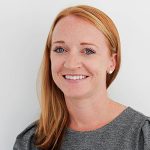 Jodie is a graduate of UConn with a PhD in Human Development and Family Sciences. She also holds a law degree from Quinnipiac University School of Law. Jodie has worked at UConn for the past 12 years, teaching at the Storrs, Hartford, and Waterbury campuses. She has taught numerous HDFS courses, with her favorite the policy courses. She also developed and teaches two new courses at Quinnipiac University School of Law. One of the courses is a seminar that introduces law students to the use of social science research in the context of family/juvenile courts, including understanding social science research methods, an intensive examination of child and adolescent development research findings, and effective application of such research in legal settings. The other course examines the problem of racial disproportionality and disparate outcomes in the child welfare and juvenile justice systems.
Jodie is a graduate of UConn with a PhD in Human Development and Family Sciences. She also holds a law degree from Quinnipiac University School of Law. Jodie has worked at UConn for the past 12 years, teaching at the Storrs, Hartford, and Waterbury campuses. She has taught numerous HDFS courses, with her favorite the policy courses. She also developed and teaches two new courses at Quinnipiac University School of Law. One of the courses is a seminar that introduces law students to the use of social science research in the context of family/juvenile courts, including understanding social science research methods, an intensive examination of child and adolescent development research findings, and effective application of such research in legal settings. The other course examines the problem of racial disproportionality and disparate outcomes in the child welfare and juvenile justice systems.
In addition to her teaching experience, Jodie was a practicing attorney for ten years primarily in the areas of family and juvenile law. She worked at the Children’s Law Center of Connecticut as an advocate for children of low-income and high-conflict families in the family courts. She also worked at a private law firm representing clients in all matters including family law, juvenile law, and elder law. Although she prioritized alternative dispute resolution methods such as mediation, Jodie litigated numerous custody and divorce trials. In the classroom, Jodie frequently uses examples and stories from her years as a lawyer to bring various course concepts to life for students.
Jodie’s research interests lie at the intersection of social policy, law, and children/families. Jodie’s previous research has focused on the effectiveness of standards in the family and juvenile courts, including the standards for Guardians ad Litem and the best interest of the child standard. She has presented her research at various national conferences and is frequently an invited speaker at local conferences and trainings including the State of Connecticut trainings for attorneys representing children. Most recently, Jodie has been working on a research project investigating racial disproportionality in the child welfare system, as well as a study investigating the impact of COVID-19 on the aging population.
Jodie and her family live in Westbrook, CT where she is actively involved in her community. Jodie is the Chair of the Board of Directors for Westbrook Youth and Family Services, is a member of the Westbrook Juvenile Review Board, a member of the PTO at her children’s school, and a member of the Board of Directors for Connecticut Court Appointed Special Advocates (CASA).
When not working, Jodie spends her time with her husband Elliot, their three young children, and her two stepchildren. She enjoys visiting her family in Maine, trips to visit friends, baking, elaborate holiday celebrations, and dreaming of future travel plans.
Keith Bellizzi interviewed for a story in Digiday
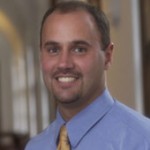 Professor Keith Bellizzi was interviewed for a story in the UK, “Masters of uncertainty: Pandemic’s unpredictability is making us adaptable, stronger and more creative, say experts”. Read the story here.
Professor Keith Bellizzi was interviewed for a story in the UK, “Masters of uncertainty: Pandemic’s unpredictability is making us adaptable, stronger and more creative, say experts”. Read the story here.
